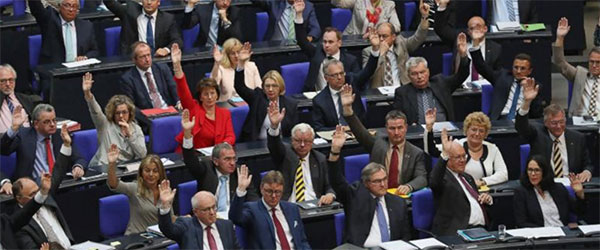The fact that the Bundestag resolution on the recognition of the Armenian Genocide was dictated primarily by the state interests of Germany, Germany-Turkey and EU-Turkey relations, “visa” negotiations, refugees problem, the money given for it, anti-Christian violence in Europe and the Middle East, all this is right, and it has been fairly spoken about in the last few days.
However, it seems to me that everything should not be simplified overly and to think that the politics do not have the so-called “idealistic component.” Firstly, the parliaments of Germany and other democratic countries are greatly dependent on the public opinion of these countries, in other words, on the value system that is professed by the majority of citizens. And the latter, both in Germany and throughout Europe, rejects xenophobia and the violence based on it.
When in 1970, the then German Chancellor Willy Brandt, unexpectedly for many people, knelt in front of the monument to victims of Nazism in the Jewish ghetto in Warsaw, it certainly was a very nice and human gesture. But to say that there was no calculation behind it, it would also be too naïve. It was a message to the whole world that henceforth Germany will be guided by these moral principles and therewith will try to advance Europe. It was a direct path to the reunification of Germany, enhancement and reaffirmation of Pan-European values. So, any interest must contain certain “idealistic” and value component.
It does not hamer but helps your calculations and advancing your interests. All countries use all possible circumstances for their interests. It is normal and there is no reason here to be upset. We must also do it, even though it is clear that our and Germany’s possibilities are incomparable. But first, we must formulate in what we believe and prove our “belief” in practice and then look for likeminded in other countries. For example, we should take into account that not everyone in Russia is thinking like Rogozin, Markov or Yepifantsev.
In Turkey, there are also people who believe that the genocide must be recognized, and the “self-cleaning” generates from the state interests of this country. Even in Azerbaijan, there are people who know that the Artsakh issue cannot be solved by military means. Of course, they are the minority because Aliyev’s regime has washed the people’s brain, and they sincerely repeat the official thesis: “either you go or we will slaughter you.” It is nothing else but a war propaganda. But it generates from our interests to find such Azerbaijanis who have the courage to oppose this hysteria. These are all the cases where our “idealistic” and interests components coincide.
Aram ABRAHAMYAN





















































